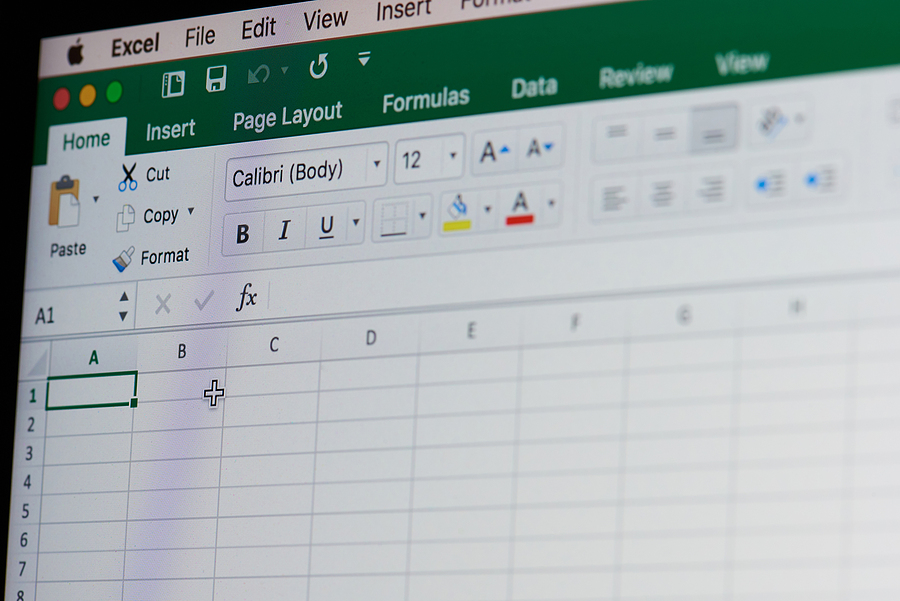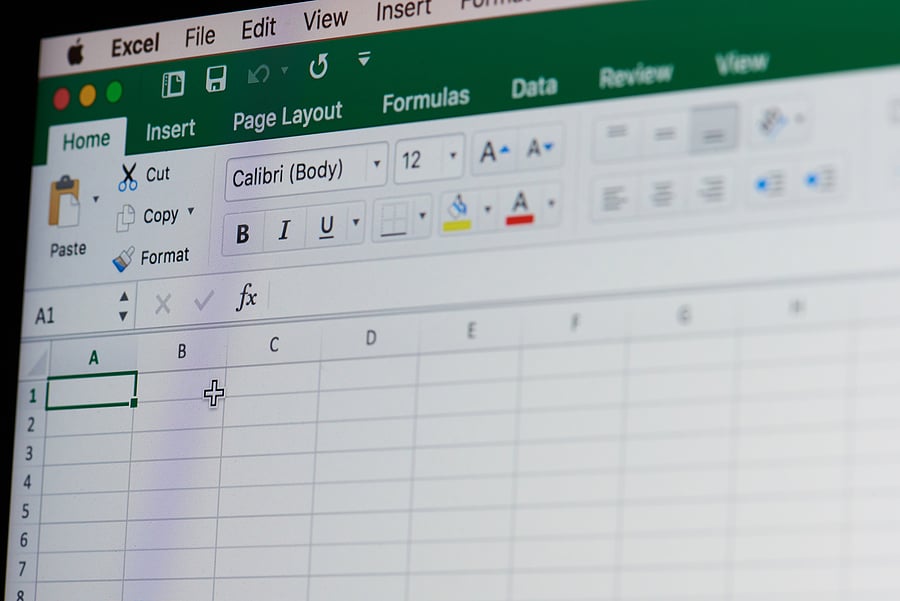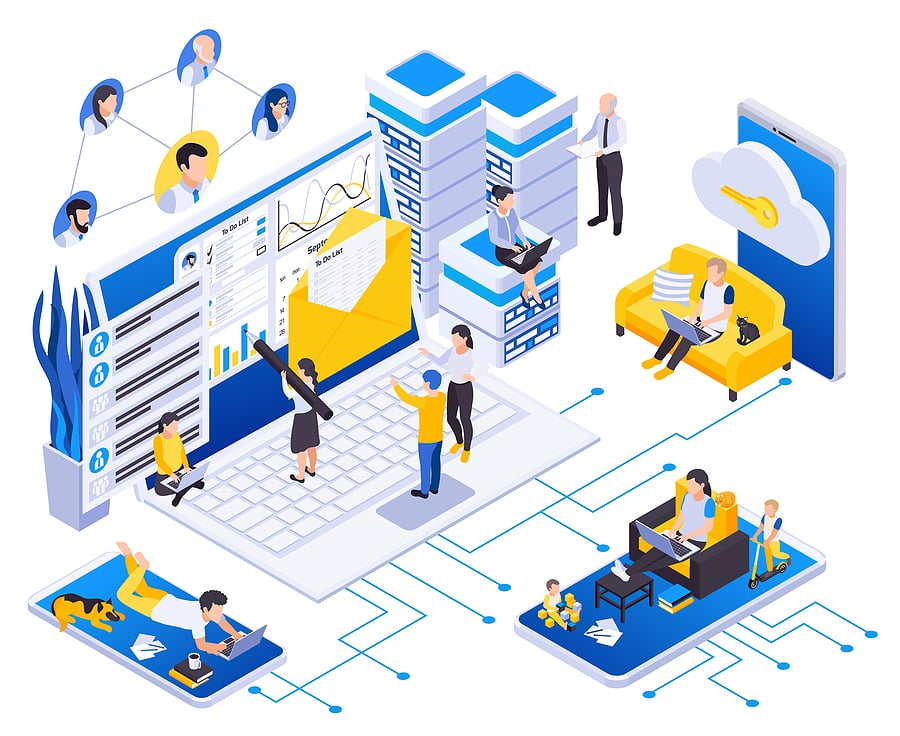5 Reasons a database is better than a spreadsheet for business
6 min read
Topic:
ASP.NET Development Services
A very good friend of mine, who just happens to own a small winery here in New Hampshire, stopped in to see me this week. It was a friendly visit, but as usual we got talking about all things technology and of course, wine. Knowing that Keene Systems develops custom solutions for common business problems, he started to vent about the lack of (reasonably priced) software in the winery industry for managing wine operations. We had a good talk, which may result in Keene developing an ASP.NET web application that would solve his headaches, at least the ones caused by the lack of technology.
Using Spreadsheets & Paper to Store Data
His winery is small, only producing around 3000 cases per year (sounds big to me), but really a micro-winery in the industry. They produce wines from grapes sourced in California, Oregon, Washington, New York, New Hampshire, Chile and Argentina. The wine production cycle is basically a 1-year process, starting with the import of grapes and juice, followed by crush & press, fermentation, clarification, bottling & ageing. The amount of information gathered, observed, recorded, analyzed, and processed in that time is quite overwhelming, especially when using spreadsheets, paper notes, and [insufficient] industry mobile apps. There is winemaking data, like chemical composition, process status, and tasting notes. Then there is operational data, like supply ordering, inventory, and equipment. This is all before we inject business data, like sales, marketing, staffing, tasting room hours, etc.
My wino friend is a pretty smart guy. He tracks everything and makes decisions based on data. He realized early-on in his winemaking career, that the data being collected was immense and very important to the success of his business. He spends considerable time on the production room floor and even more time behind his computer “crunching the numbers.” Time, is a commodity that he simply doesn’t have.

Can We Escape Using Spreadsheets as a Database?
Surely there must be an industry application out there that solves this problem, right? There are hundreds of wineries all with similar problems requiring some sort of software to solve them. There are wineries of all shapes and sizes, with winemakers looking at the same data and making the same conclusions. Well, guess what. The software that exists today only serves the largest wineries around the world. The technology is awesome. It interacts with the tanks, controls pumps, measures temperature & chemical data, even controls vineyard operations like irrigation and weather. Guess what else? C’est trop cher. (“it’s too expensive” as say in we say in French wine country). It is way too expensive for even the mid-sized wineries, let alone the small and micro guys. So, this won’t work for my friend.
Surely someone has developed an app that can be downloaded to run on his iPad. Indeed, they have. So, he tried that for a couple of seasons. There were actually 2, one that was free and one that he paid for. The apps were glitchy and ineffective as they did not record data the way a real winery would, and it didn’t even touch the operation and sales side of the business.
Running a Business on Spreadsheets
So, he has been running his entire business on an endless array of spreadsheets and paper documents. They are quite impressive really. His command of Microsoft Excel is actually pretty remarkable for a wine guy. Multiple sheets, with functions referring to other sheets, all color-coded, organized and neat. There are spreadsheets for winemaking, operations, sales, financial data, human resources, and on and on. Yet, after all of this organization and data management, he is still complaining about the time it takes him to do all of this. You see, he can’t really be working in spreadsheets with purple stained, wet hands in the winery. So, he records everything on paper, then transfers it to his spreadsheets. Can you imagine? What a colossal waste of time and energy.

Replacing the Spreadsheets with a Web Application
Perhaps we should build him a custom web application that can be accessed remotely, allowing him to collect the data on a ruggedized, waterproof tablet in the winery as it is observed. The data can be organized in an SQL Server database, with an ASP.NET user interface, giving him immediate control and feedback of every step of the process. Furthermore, the user interface can be made mobile responsive so that it works perfectly on mobile devices. And most importantly, it would be custom tailored to how his winery does business. What a great idea!
Spreadsheets, notes, documents all have their function and are very useful. But, when it comes to organizing, presenting, and analyzing business data, as with the case of my wine buddy, they are cumbersome, time-consuming, and ultimately ineffective.
What are the advantages of a database over a spreadsheet?
-
Spreadsheets don’t separate the data from the calculations.
If you use spreadsheets, then you know that many cells are meant for the empirical data, the actual numbers that you need to enter into it, upon which other functions act. Some cells have functions in them that use the data from other cells to make some sort of calculation. These 2 types of information are very different and are often difficult to tell apart, as the results of the functions are what gets displayed in the cell. Over time, as more and more data are entered, and functions created, humans tend to make errors and overwrite functions that were previously created. And, as we need to expand the usability of the spreadsheet, we add more sheets, columns, rows, and cells that often blow out the formulas we’ve previously spent hours creating. With a database, just the raw data is stored in the database. It is simply a repository for storing the data. The function of executing any calculations is done by the web application that accesses the database. And furthermore, the end users are never allowed to directly touch the database so there is little opportunity for someone to accidently corrupt the data. -
Spreadsheets don’t express data relationships well.
Unless you have all of your data in the same Excel file, your sheets will not be able to express complex relationship between spreadsheets. Each spreadsheet file is an autonomous file, that can only work with the sheets (tabs) contained within. So, if you have a spreadsheet for operations, another for sales, and another for human resources, you will be restricted to the data remaining in those individual silos. You will not be able to have sales data interact with operations data, etc. By contrast, relationships can be built into a database. For example, an orders database table can be linked to a clients table. This allows reports like “Orders by Client” to be easily produced in a web application. -
Spreadsheets are not accessible by multiple users simultaneously.
Desktop applications like Microsoft Excel, which are especially useful, do not allow access by multiple users at the same time. So, people resort to emailing copies of a spreadsheet around where the users can make their edits one at a time in sequence. You can probably guess where I’m heading with this. With multiple copies floating around version control becomes impossible and you end up with some people editing the wrong copy or wiping out someone else’s edits. Spreadsheets were simply not designed for concurrent use. A well-designed web application tied to a relational database can be accessed by multiple users at the same time allowing for real time collaboration between your employees.
-
Spreadsheets are not scalable.
Unlike a properly designed database, spreadsheets do not allow for scalability. At some point in time, as the data needs of an organization grows, Spreadsheets become unwieldy and unmanageable. We have seen instances where a company’s spreadsheet has grown so large over time that it literally takes minutes to add data to one cell because the entire spreadsheet is recalculated after each cell is modified. Spreadsheets aren’t efficient for the human user, not with big data. By comparison, a database’s ability is usually limited only by the amount of disk space, and disk space is getting cheaper every year. Plus, database tables can be indexed making database queries of thousands of records blindingly fast.
-
Spreadsheets like Excel are not accessible over the internet.
As the COVID-19 pandemic has shown us, remote access to data over the internet is now more important than ever. The way business is now conducted has forever been changed by the pandemic. Nimble businesses who already had their data in online accessible databases sailed through the pandemic without a hitch because their employees could access the data they needed to do their jobs from home 24/7 while companies who had their data buried in spreadsheets were left scratching their head wondering how they were going to survive.

Why databases are better than spreadsheets
Bottomline, databases are more efficient than spreadsheets. They can store nearly unlimited amounts of data that would bog down any spreadsheet. Instead of being limited to use by only one user at a time, databases can be concurrently used by multiple users at a time, making collaboration possible. Since the user cannot actually modify the data directly, there is little chance of inadvertent data corruption. And most importantly, databases combined with web applications make the data available to users over the internet 24/7.
If you are one of those, like the winery owner, who insists on seeing the data of a spreadsheet in rows and columns, then you are in for a treat. Database data can be presented to a user in a spreadsheet-like user interface, where appropriate, when using web development tools like Telerik’s User Interface Tools for ASP.NET Core. It has a spreadsheet control that can present database data like a spreadsheet. This gives you the best of both worlds: the efficiencies, structure, scalability and multiuser capability of a real relational database but the simplicity of a spreadsheet. And, if you are one that wants to merge all of your spreadsheets into one system that will provide for faster, more efficient, accessible anywhere, way to process complicated business information, like my wine buddy, then convert those cumbersome spreadsheets to an online database.
Phew. Wine anyone?
To find out more information about our ASP.NET software development outsourcing capabilities, or if you’d like to discuss how to convert a spreadsheet into a web-based database application with Keene Systems CEO, Lance Keene click here to book a call with him. You can also download our eBook - Why ASP.NET Development Services Fuels Business Growth - to learn more about this essential topic.


